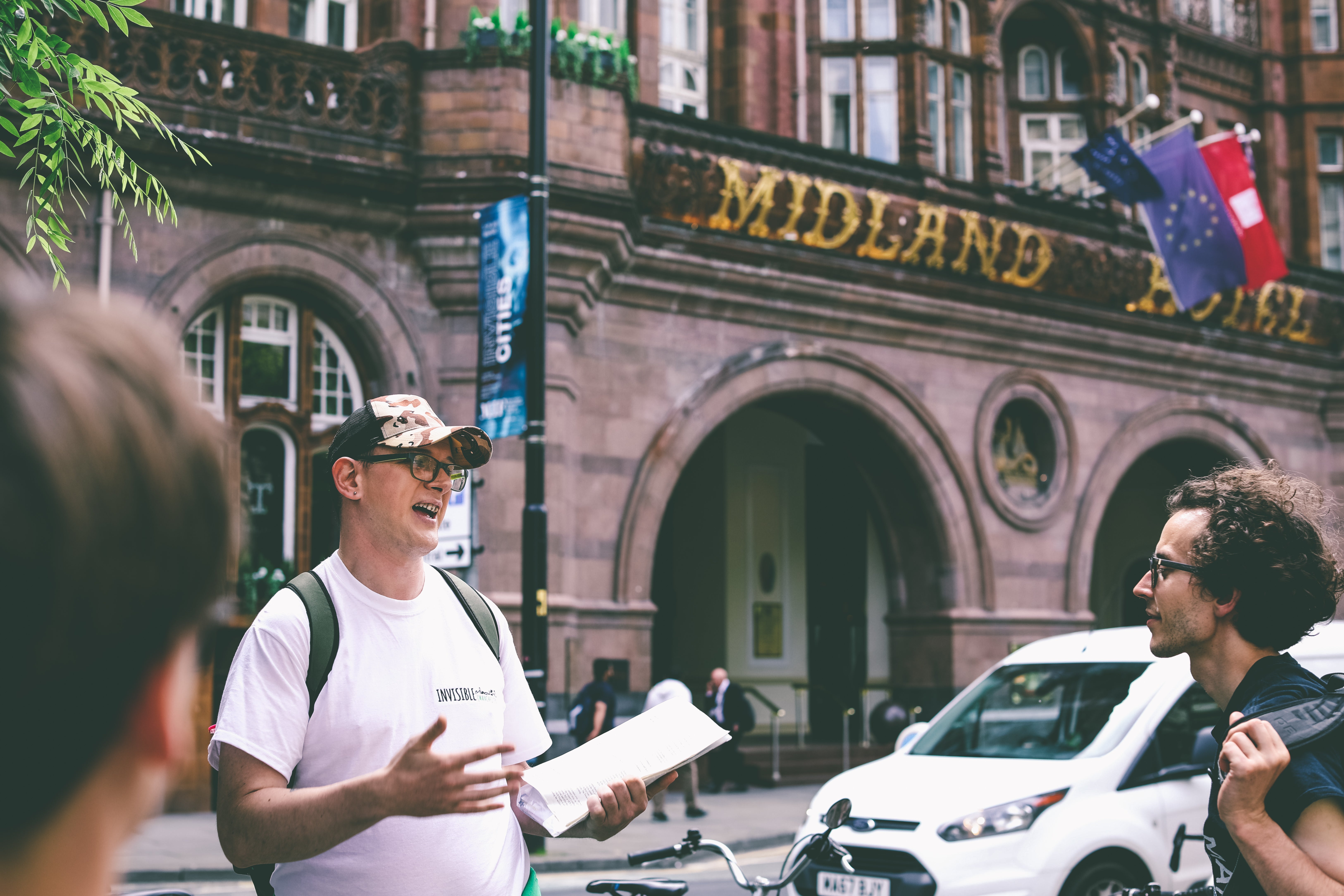Lonely Planet Awards: Meet the UK tour company with a difference that’s been named best in the world
Helen Coffey speaks to founder Zakia Moulaoui Guery about the award-winning social enterprise that’s setting a new standard for responsible tourism


Your support helps us to tell the story
From reproductive rights to climate change to Big Tech, The Independent is on the ground when the story is developing. Whether it's investigating the financials of Elon Musk's pro-Trump PAC or producing our latest documentary, 'The A Word', which shines a light on the American women fighting for reproductive rights, we know how important it is to parse out the facts from the messaging.
At such a critical moment in US history, we need reporters on the ground. Your donation allows us to keep sending journalists to speak to both sides of the story.
The Independent is trusted by Americans across the entire political spectrum. And unlike many other quality news outlets, we choose not to lock Americans out of our reporting and analysis with paywalls. We believe quality journalism should be available to everyone, paid for by those who can afford it.
Your support makes all the difference.For Zakia Moulaoui Guery, the founder of Invisible Cities, it was a momentous event in her own life that sparked the idea for her one-of-a-kind social enterprise. In 2014, at the age of just 27, she was diagnosed with bowel cancer.
“When I was diagnosed, I realised I wouldn’t be able to travel for a long time – and it made me realise how much I love travel, how important it is,” she says.
With a background working in the homeless sector, Zakia felt the stirrings of a new idea – to connect this disenfranchised community to tourism. Just two years later, Invisible Cities was born.
The project’s concept is simple but revolutionary: people who have experienced homelessness are trained up as tour guides in their home towns, given comprehensive personal development workshops and on-the-ground support along the way to enhance their confidence and public speaking. They gain a slew of transferable skills and create their own tailor-made tour, while tourists get a unique insight into a city from an unexpected perspective.
“As a social enterprise, there’s sometimes this idea that tours will be charity-focused or wishy washy,” says Zakia. “But we and the guides worked really hard on building our tours and making them as professional as possible. It’s all about balancing the entertaining side of it, and giving interesting information about the city for first-time visitors, with the issues people are interested in.”
Tours are a distinctive blend of a destination’s history and best bits, with guides’ own personal stories woven throughout, offering something completely different to a standard tour. According to Zakia, the enterprise’s name refers to two things: the “invisible” hidden gems that tourists and locals alike might not know about, and the way in which homeless people can so often feel invisible and marginalised. But these tours finally put them centre stage.
“What makes it special is the guides themselves: to see how much they’ve learned, to see the impact that our work has had,” says Zakia. “You get to hear about a guide’s story, see their passion and make a personal connection with a person that you never thought you would meet. That’s what makes it really memorable.”
And others clearly agree, as Invisible Cities has been awarded the accolade of “Best Tour” in Lonely Planet’s prestigious Best in Travel list for 2021. The publication has shifted gear from its normal round-up of best cities, regions and countries, and has this year split awards into three categories that reflect the changing nature of travel: Best in Sustainability, Best in Community and Best in Diversity. Invisible Cities sits in the Community category.
“Travel in 2021 and beyond will be a much more considerate exercise than it has been ever before,” said Lonely Planet CEO Luis Cabrera. “With travellers cautiously re-engaging with the world and focusing on ensuring their impact is safe and positive for host communities, we have decided to highlight destinations and individuals that truly enable visitors to make genuine contributions through regenerative travel.”
You get to hear about a guide’s story, see their passion and make a personal connection with a person that you never thought you would meet
It taps into a bigger trend for “responsible” travel, which was increasingly gaining traction last year before pandemic-related restrictions temporarily halted the scourge of overtourism. “Lots of people want to travel in a different way now,” says Zakia. “They want to do it consciously and responsibly, they want to know where their money is going, they want involvement with the local community and to see what the city is really like behind the glossy Google ad.
“We fit into that trend perfectly.”
It’s part of what’s made Invisible Cities so successful – within four years it has expanded rapidly from Edinburgh into Manchester, Glasgow and York. Cardiff is next on the list; Zakia is keen to take the concept international in the next five years, provided she can find the right partners on the ground.
“I love the social enterprise model, but it has to align with the way people consume and spend money,” she says. “If something is unaffordable or isn’t something people want to spend money on, it doesn’t matter if it helps the community.”
Invisible Cities, as the only UK-based project or destination to scoop a Lonely Planet award this year, is proudly flying the flag for British tourism. Its winning mix of doing good and offering an unforgettable visitor experience could just set the standard for a kinder, more conscious travel industry in 2021.
Invisible Cities has launched a Christmas crowdfunder campaign to help support its guides and volunteers. Find out more here.

Join our commenting forum
Join thought-provoking conversations, follow other Independent readers and see their replies
Comments